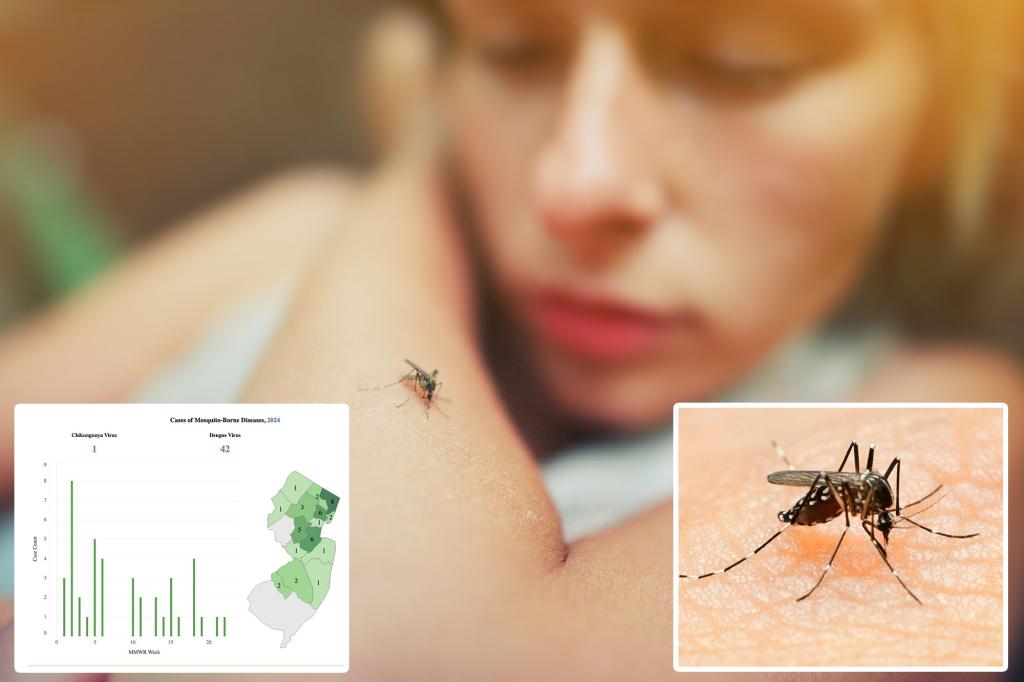Dozens of New Jersey residents have fallen ill with dengue fever, and the Centers for Disease Control and Prevention (CDC) Warns of record numbers of infections in Americas this summer.
At least 41 Garden Staters have been infected with a potentially deadly mosquito-borne virus, health officials said.
All of the infected people had recently traveled, but the CDC did not specify where they traveled, and there has been no confirmed person-to-person transmission within the state.
The CDC said community transmission is “limited” to “small outbreaks” in areas such as Texas, Florida and Hawaii.
The agency considers six U.S. territories to have “frequent or persistent” dengue transmission, including Puerto Rico, American Samoa, the U.S. Virgin Islands, the Federated States of Micronesia, the Republic of the Marshall Islands and the Republic of Palau.
Dengue is transmitted to humans through the bite of an infected Aedes aegypti mosquito, which is known to spread Zika, yellow fever and several other viruses.
According to the CDC, about 400 million people worldwide become infected with dengue each year, and about 40,000 of them die from severe cases of the virus.
In the wake of the COVID-19 pandemic, dengue cases have surged around the world, with the Americas recording the highest number of cases ever.
Last year, the region reported 4.6 million cases and 4,000 deaths; as of June 24 this year, that figure had already more than doubled to 9.7 million cases.
Dengue typically causes symptoms such as fever, nausea, vomiting, rash and joint and bone pain and is not usually fatal in healthy patients, but health officials warn that around one in 20 people who become infected will experience a more dangerous infection.
Infants under 1 year old, older people, or people with certain medical conditions are considered at higher risk of developing serious illness.
New Jersey infected 15 counties in the stateThe county with the most confirmed cases is Bergen County in the northeast, where eight travelers have been infected so far.
There is no known medicine to treat the virus, and the CDC says the best way to prevent infection is to avoid mosquito bites whenever possible and take measures to control mosquito breeding, such as discarding outdoor standing water where mosquito eggs breed.


